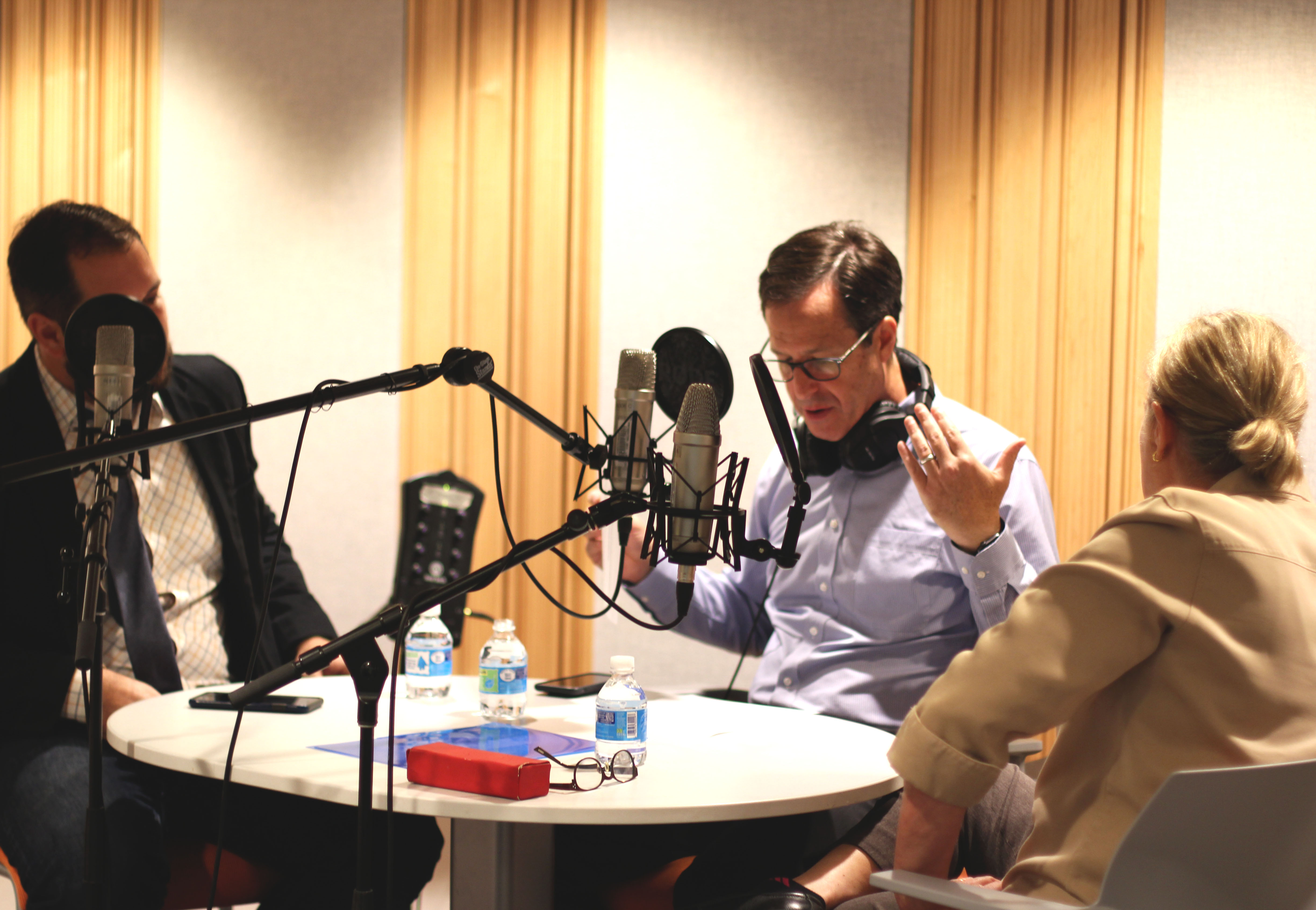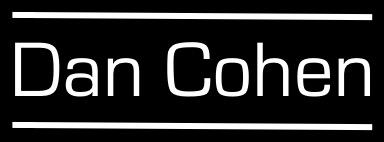
When I arrived at Northeastern University a year ago, I wanted to start a new podcast that highlighted new ideas and discoveries through interviews with a wide range of faculty and researchers. Snell Library has incredible facilities not only for quiet study but also for the production of media and digital scholarship, and so it was natural to use our professional recording studio and the expertise of our staff to create this podcast. The result was What’s New, which wrapped up its first season a couple of months ago.
Longtime readers of this blog will know that I had a prior podcast, Digital Campus, which began in 2007, during the first wave of podcasting. Created with my friends at the Roy Rosenzweig Center for History and New Media, it was a roundtable discussion of how digital media and technology were affecting learning, teaching, and scholarship at colleges, universities, libraries, and museums. Digital Campus lasted through 2015, and built up a nice audience of fellow practitioners in digital humanities, academia, and cultural heritage institutions over those eight years.
With What’s New I wanted to draw on a larger canvas than Digital Campus, and try to reach an even larger audience. This wasn’t purely populist. In part the new podcast was my audio answer to the ongoing question about the social role and value of the academy; to me, that answer is not very complicated, and can be seen just by walking around a campus and talking to people. For the most part, despite all of the criticism and hand-wringing, universities still foster the people, environment, time, and resources to allow us to delve into topics far more deeply than anywhere else, and that process leads to profound, applicable, and enriching ideas in the broadest sense: not only scientific and technical breakthroughs but also a better understanding of ourselves as human beings.
Think about the difference between a blog post and a book: one can be tossed off in an afternoon at a coffee shop, while the other generally requires years of thought and careful writing. Not all books are perfect — far from it — but at least authors have to wrestle with their subject matter more rigorously than in any other context, look at what others have written in their area, and situate their writing within that network of thought and research.
Podcasts have generally been more off the cuff than rigorous. Sure, there are now many NPR, BBC, and other podcasts that are professional and well-produced, but a majority of podcasts are still unedited conversations. Sometimes that format can work well — I’m biased, but I think Digital Campus was fun to listen to, in part because we were friends and could joke with each other, or quickly grasp where one of us was going with a topic and then riff off of that.
Before launching, we had a lot of discussions about the structure and tone of What’s New, and settled on a simple half-hour interview format that we thought would go deep enough into a topic but not exhaustively so, and that would not be casual conversation that dragged on for an hour or two. That gave us the opportunity to cover a number of challenging topics and do them justice, while not being exhaustive. We left it to the listener to learn more through links, by reading a related book, etc.
I’m thrilled with how the first season went, audience-wise. Last time I checked we had over 30,000 streams so far, and the weekly numbers continue to grow. I’ve really enjoyed reading articles and books on topics I know nothing about and then having 30 minutes to frame complicated subjects in plainspoken ways, and to ask some probing questions of the guests on the show. It’s allowed me to get to know the incredible faculty at Northeastern, and to promote their work. (At the end of the season, we had a special guest from off campus, and that is likely to happen more in the future.)
If there’s one bit of self-criticism, the format of What’s New, especially within the strictures of a professional recording studio, could occasionally come across as a bit too formal, and so as we think ahead to Season 2, we’re going to sprinkle in some looser elements. We’re changing up the sound design a bit and recording the podcast outside of the studio, potentially with sounds from the field (e.g., within a lab). There will be a new, less ponderous theme song. I think I got better and less stiff as an interviewer as the season went on, but I’ll be working on that too; I have to admit to being used to being the interviewee rather than the interviewer.
For now, it’s a good time to catch up on Season 1 if you haven’t done so already, and subscribe to the podcast (just use one of the links at the top of the What’s New site) for the launch of Season 2 in September. Here are the episodes from Season 1:
1. How We Respond to Disaster – how cities bounce back from natural disasters or terrorism
2. Fake News and the Next Generation – the news consumption habits of young people, and the elusiveness of the truth
3. The Steamship Revolution – the spaceships of the 19th century
4. Enabling Engineering – an incredible group that designs devices for those with physical and cognitive disabilities
5. Inventing Writing – a fascinating story of how the Cherokee language went from oral to written
6. The Secrets of Hollywood Storytelling – a screenwriter and film producer on how movies are written and sonically designed
7. Tracking the Invisible Infrastructure of Our Cities – what you learn when you attach GPS devices to your trash
8. The Algorithms That Shape Our Lives – clever methods reveal how Facebook, Amazon, and other big internet companies work
9. The Hidden Universe of Comics – beyond the superheroes you see at the multiplex
10. Designing for Diversity – how to design digital systems to be more attentive to the true diversity of humanity
11. The Future of Energy – adding solar power to the grid is not so simple
12. Fractivism – how communities are responding to this new energy production method
13. The Evolution of Cities – the collision of people, transportation, and buildings as seen through the eyes of a city planner
14. Privacy in the Facebook Age – or what’s left of it, and whether regulation will help
15. Addressing Neglected Diseases – discovering vaccines and cures for these diseases requires a completely different model
16. Engineering the Future: Boston’s Big Dig – inside one of the biggest engineering projects in history, from its primary engineer and advocate

Leave a Reply
You must be logged in to post a comment.